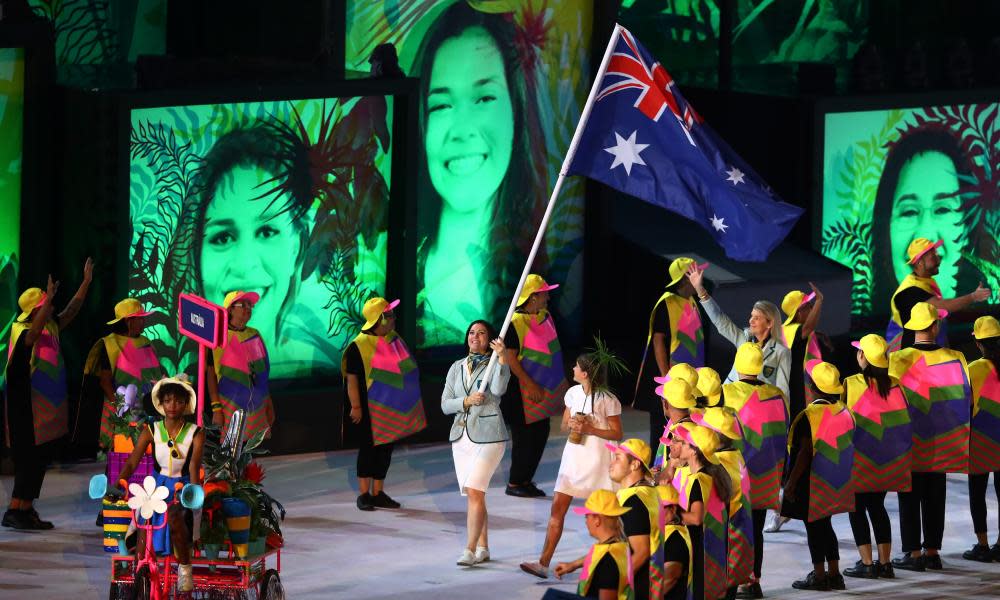ABC drops Tokyo Olympics live radio coverage, blaming budget cuts

The ABC has blamed budget cuts among the reasons Australian audiences will not be able to listen to the Tokyo Olympics live on ABC radio next year, ending a 67-year-old sports broadcasting tradition.
The public broadcaster has declined to buy the non-commercial broadcast rights from rights-holder Seven this year due to the cost of covering the games as well as budget pressures and the “changing broadcast environment”.
The ABC will lose part of its DNA by not being at the Tokyo Olympics.
The coverage has always shed a light on amazing stories of not only Australians, but human achievement the world over.
Its a national shame.— Quentin Hull (@QuentinHull) November 10, 2019
It’s understood the ABC pulled the plug on negotiations with Seven late on Friday after six months of consideration. The sticking point is the cost of staging the broadcast rather than the fee for the rights, sources said.
The ABC is trying to fill an $84m hole in the budget from a Coalition cut in May 2018.
The rights would have given ABC listeners a dedicated digital radio station to listen to the Tokyo games in 2020 as well as live commentary from ABC Grandstand and coverage of every Australian medal.
Related: ABC pulls Q&A’s 'confronting' feminist debate from iview amid investigation | Weekly Beast
At Rio in 2016 and London in 2012, Grandstand broadcast all Australia’s achievements in the pool and the track as well as major sports such as cycling, hockey, basketball and Rugby Sevens.
With the non-commercial rights the ABC has been able to broadcast on ABC local radio, Grandstand digital radio and on the ABC radio app.
The AOC has called on the ABC to reverse its decision not to provide live radio coverage of the @Tokyo2020 Olympic Games, saying the decision is short-sighted and runs contrary to the ABC Charter.
Read more 👉https://t.co/67znwRfeKN pic.twitter.com/tcshmD0M7w— AUS Olympic Team (@AUSOlympicTeam) November 11, 2019
The Australian Olympic Committee has called on the ABC to reverse its decision.
Chief executive officer Matt Carroll said the decision was short-sighted and runs contrary to the ABC charter.
“The ABC should reconsider this decision,” Carroll said.
“The AOC is prepared to put this case to the chair of the ABC directly, on behalf of the 8 million Australians who participate in Olympic sports.
“Not to mention the millions more who follow, support and celebrate those athletes.
“The AOC believes the decision is monumentally short-sighted and a great let down to Australians who rely on their national broadcaster – from the smallest of communities to our suburbs.
Carroll said the Olympics helped to counter scourges like obesity and mental illness.
“Tokyo 2020 presents such an opportunity to do that, given the timezone, in particular,” he said.
“The Olympics can inspire Australians to embrace something valuable and as the ABC’s charter indicates – to contribute to a sense of national identity. There’s no bigger event in the world to fulfil this ambition.
“There is no sporting movement in Australia that covers the multi-cultural and geographical diversity of our country as the Olympic movement – we will be sending athletes to compete in some 42 disciplines in Tokyo.”
The ABC’s first Olympics as an official rights holder was Helsinki in 1952, and the ABC had full television and radio rights from the Melbourne Olympics until Montreal in 1976, when the television rights moved to a commercial station.
“This is an incredibly tough decision, especially given our 67-year run as the official non-commercial Olympic Games radio broadcaster,” a spokesman said.
“Due to competing budget priorities coupled with the fact that Australians can access Olympic Games coverage in many other ways, we have chosen not to pursue rights in 2020.”
No Grandstand staff would be going to Tokyo next year, the spokesman said.
While the ABC will not provide live commentary for the Olympics on radio, ABC News and ABC Grandstand will provide daily Olympic updates across all platforms.
The ABC has been identified with the Olympics since it covered its first games in 1932, and ABC TV screened the first Olympic footage seen on television by Australians in 1956.
The dramatic “Gold! Gold to Australia! Gold!” call by ABC commentator Norman May was broadcast in 1980 – although it was not heard first on the ABC but on commercial radio station 2UE because it was in the middle of the night when the ABC was off air.
ABC Radio also broadcast Australian runner Cathy Freeman’s win in Sydney in 2000.

 Yahoo News
Yahoo News 
